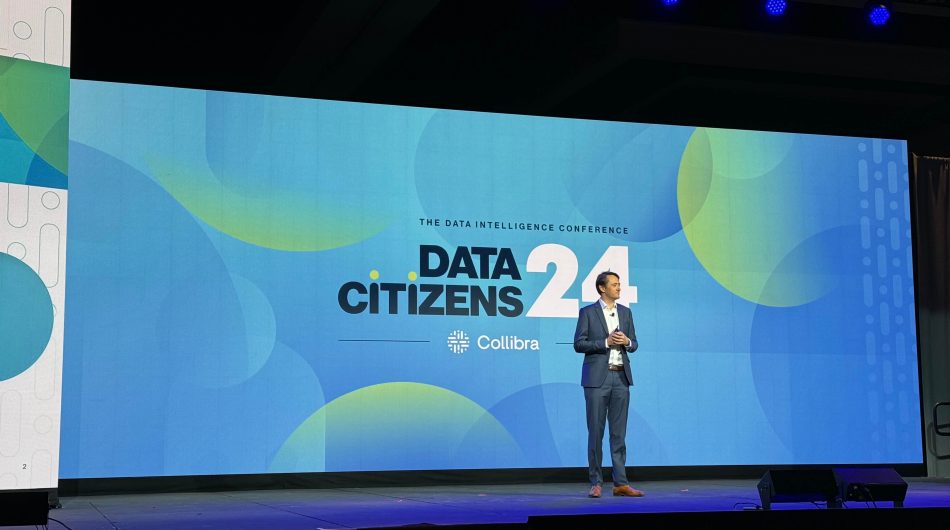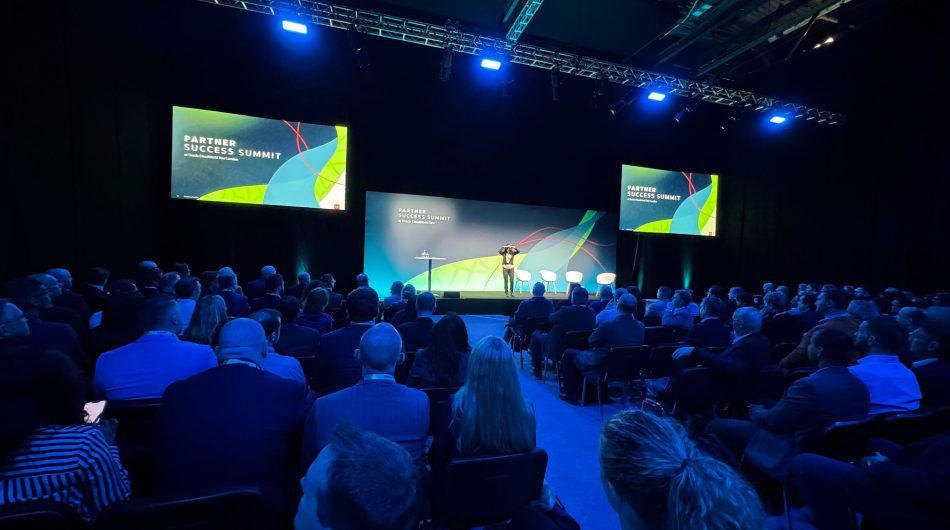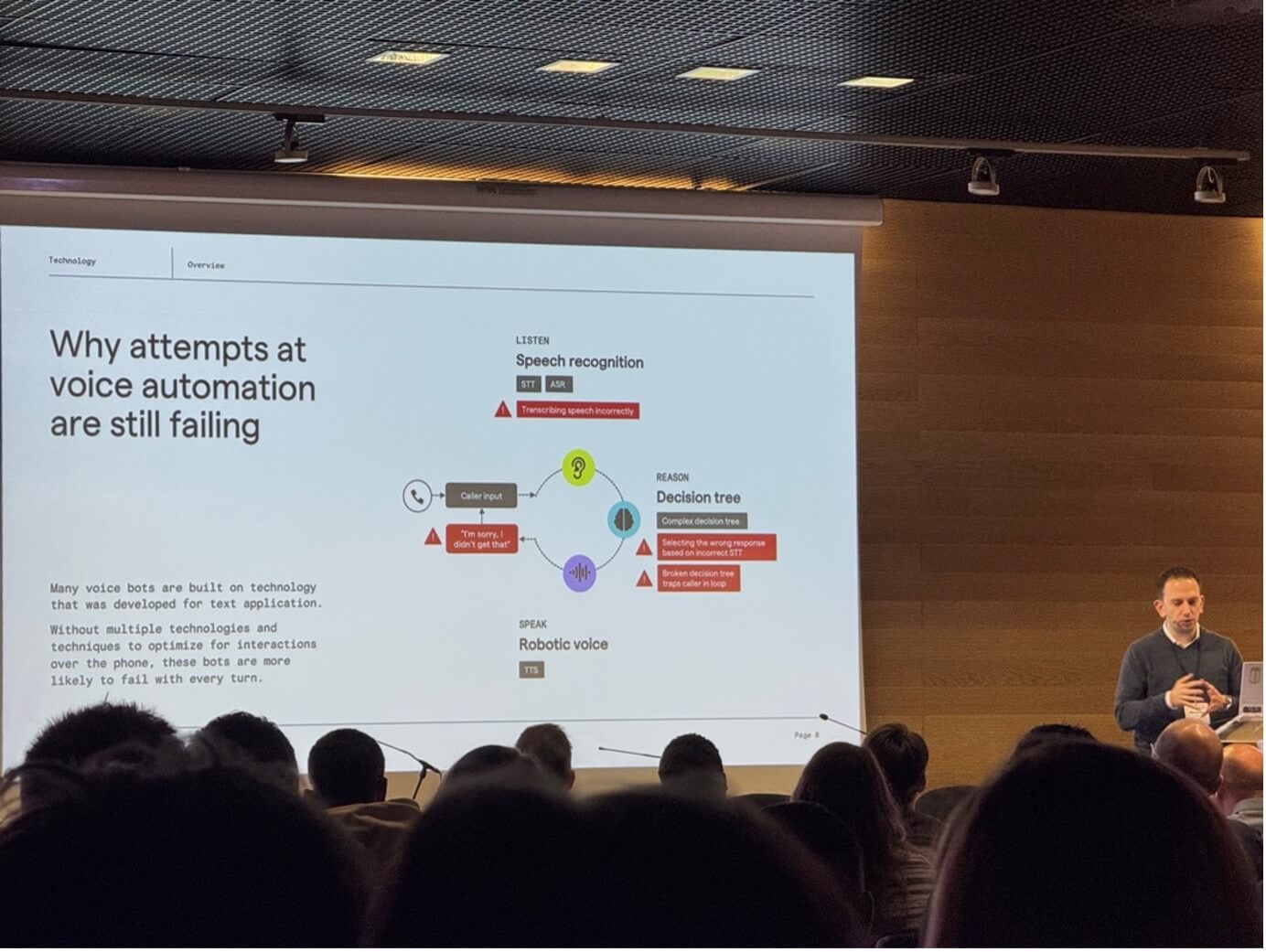
get in touch
Another year, another great conference in our hometown of Zagreb, Croatia! The eighth iteration of the AI2Future conference took place on October 17th and 18th, 2024, at the well-known Kraš venue, and it was a true meeting point for AI enthusiasts, experts, and industry leaders.
Organized by CroAI, the Croatian Association for Artificial Intelligence, AI2Future is Croatia’s leading conference on artificial intelligence, data analysis, machine learning, and data science. This year, the theme was “AI Beyond Hype,” highlighting the real-world impact and applications of AI beyond initial excitement.
The conference gathered global experts to discuss advancements and applications of AI. It featured two tracks—business and engineering—that ran simultaneously, providing attendees with opportunities to hear about the latest trends, research, and use cases. There were talks on natural language processing, computer vision, data analysis, synthetic data generation, and much more. Attendees had plenty of opportunities to network, explore real-world AI applications, and engage directly with industry leaders.
Here are the highlights from the sessions we attended.
Advancing Conversational AI: From Research to Real-World Impact
It’s late 2024, but people dislike speaking to robots even more than they did a decade ago.
That hasn’t stopped Nikola Mrkšić and PolyAI from developing voice assistants for enterprise contact centers. Just picture yourself booking a hotel room at the peak of the summer season. You’ll be lucky if the person on the other end picks up the phone. But what if there was a voice assistant on the other line that never misses a beat?
It works wonders for business too!
If you’re a business owner in a line of work that can’t exist without communicating with clients, you know that missed calls equal missed revenue. Having a natural-sounding voice assistant that answers the phone every time reduces staffing costs, handles seasonal volume peaks, and increases customer experience.
It’s a win-win.

AI in Cybersecurity
Did you know MIT researchers have identified over 700 security risks tied to AI?
This session by Tomislav Vazdar from Riskora provided insights into lesser-known aspects of using AI models. AI offers immense opportunities and significant challenges at the same time, and balancing these is easier said than done.
The biggest challenge is that AI isn’t governed, so it can pose huge security risks for companies.
In general, AI helps companies and cybersecurity professionals guard against malicious attacks. It has numerous benefits, such as real-time monitoring and anomaly detection, vulnerability identification and automated patching, behavior analytics, and so on.
So, what’s the downside? AI is used by attackers too, so your cybersecurity experts must up their game fast to stay relevant.
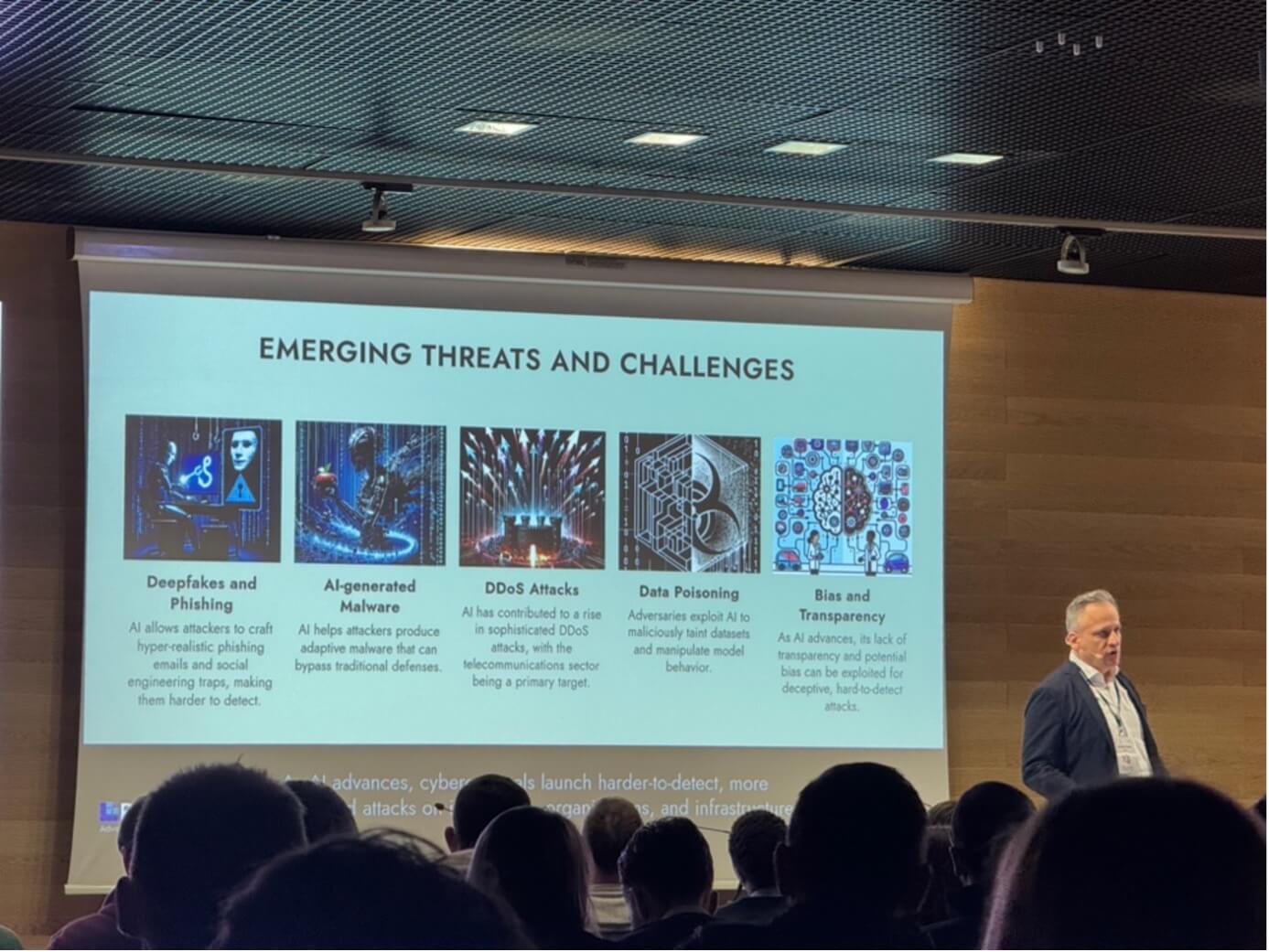
AI in Healthcare: AI4Health.Cro Project
Dr. Anja Barešić took the stage to talk about the AI4Health.Cro project, a collaborative initiative focused on using AI to enhance healthcare. Imagine a world where diagnostics are faster, more accurate, and personalized for every patient. That’s exactly what AI4Health.Cro aims to achieve by applying machine learning to complex genomic data.
The project is all about improving early disease detection and providing personalized medical care. Dr. Barešić shared some impressive results—better accuracy in diagnostics and enhanced management of patient data. It was a great example of how AI can genuinely transform healthcare, especially here in Croatia.
Can AI Make E-Commerce and Online Marketplaces Become More Human?
Yet another interesting presentation packed with real-world use cases was delivered by Mladen Fernežir from Velebit AI.
For buyers on online marketplaces, features like visual search, AI fashion search, chat-based search, outfit finder based on your face color, virtual try-on, and real-time object detection are a guaranteed way to bring your shopping experience to the next level.
If you’re a seller, automated product tagging, accurate product categorization, generated product descriptions, video generation based on product images, and duplicate detection are here to make you faster and get in front of more buyers.
If you’re looking to restrain yourself from late-night online shopping and impulsive purchases, well, AI isn’t on your side.
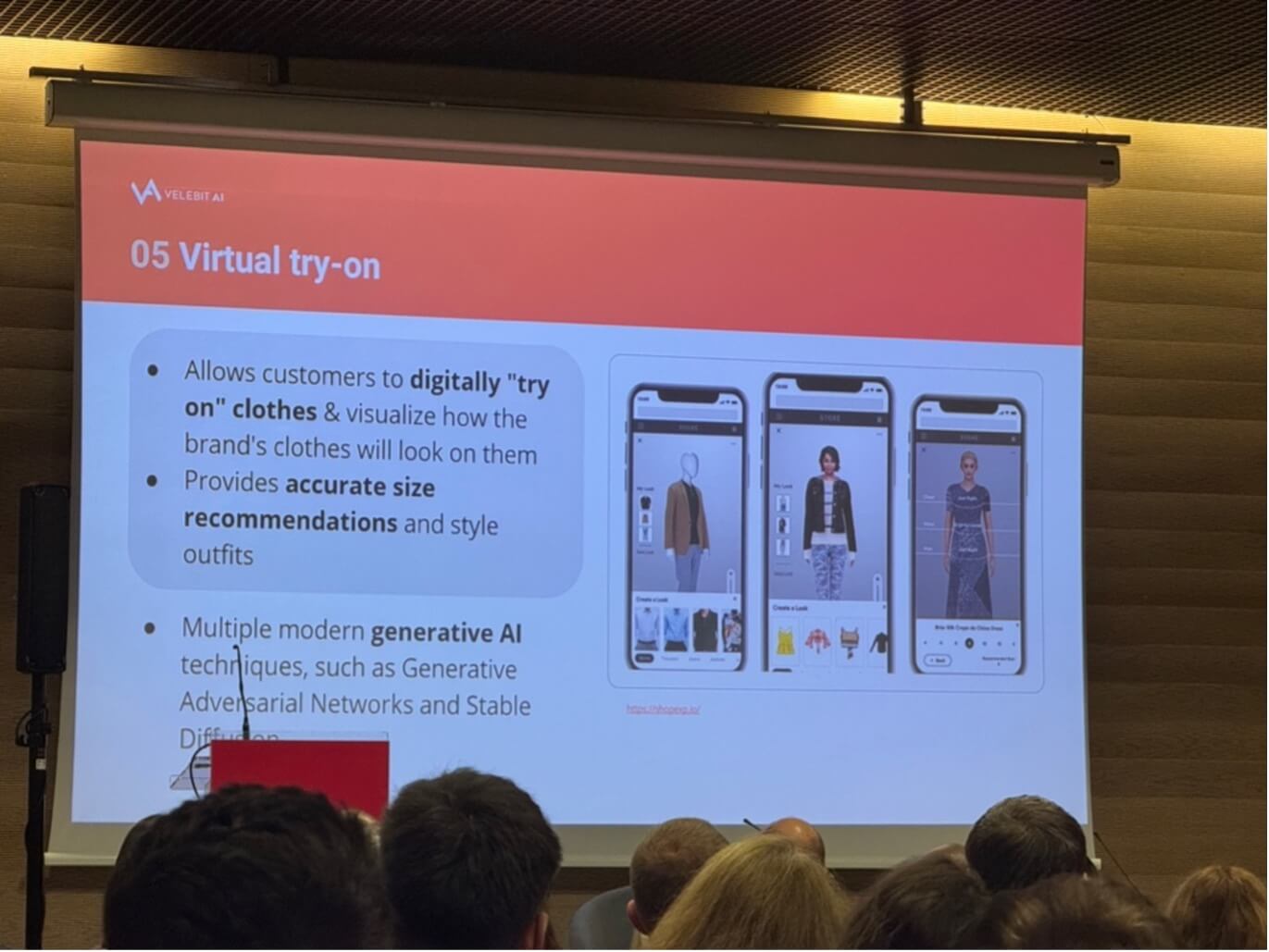
Reasoning Within Large Language Models
Marko Velić from Google tackled one of the trickiest challenges in AI today: reasoning within Large Language Models like GPT-4. Picture this—these models are great at recognizing patterns and generating language, but they still struggle with complex reasoning, especially when it comes to tasks that require long-term memory or making logical deductions.
Marko explained that while LLMs have come a long way, they sometimes produce “hallucination” errors – responses that sound plausible but are simply wrong. He emphasized that there’s ongoing research to make these models better at structured reasoning and to minimize these hallucinations. It’s fascinating to see how the research is pushing the boundaries of what AI can do.
Synthetic Data for Medical Research
Stipe Kabić and Ena Aničić from Atomic Intelligence presented a really intriguing session on the use of synthetic data in medical research. One of the big problems in this field is access to patient data – privacy regulations make it challenging for researchers to get the information they need.
Their solution? Generating synthetic data that mimics real patient data, allowing for large-scale analyses without compromising privacy. This means researchers can now conduct in-depth studies in areas like epidemiology and predictive diagnostics, all while keeping patient information secure. It’s a game changer for medical research, making data accessible for both public and private institutions, and expanding the possibilities for innovation in healthcare.
Microsoft’s AutoGen v0.4
One of the sessions that drew the most attention was delivered by Eric Zhu, Senior Researcher at Microsoft Research, who introduced AutoGen v0.4. Imagine using multiple AI agents to streamline operations and optimize processes – that’s the idea behind AutoGen v0.4.
The new product aims to simplify how companies integrate AI into their daily operations, making everything run more smoothly and efficiently. It’s always exciting to see how tech giants like Microsoft are pushing the envelope, and AutoGen v0.4 looks like it could be a powerful tool for businesses looking to make the most of AI.
Final Thoughts
AI2Future 2024 conference was packed with excellent presentations, keynotes, and workshops delivered by AI experts.
We had the privilege to hear world-class industry leaders’ perspectives on AI and how they use it to make a meaningful difference. Unfortunately, presentations didn’t have QA slots at the end, but attendees were able to connect with presenters during coffee and lunch breaks.
Overall, we were impressed with the number of original ideas, research projects, and startups, and hope to see presenters behind them next year – sharing lessons learned and insights into what’s coming next.



